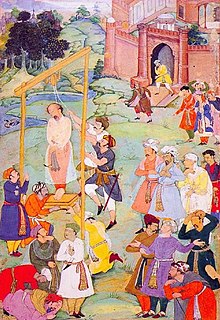A Quote by John le Carre
A good writer is an expert on nothing except himself. And on that subject, if he is wise, he holds his tongue.
Related Quotes
Good work is no done by "humble" men. It is one of the first duties of a professor, for example, in any subject, to exaggerate a little both the importance of his subject and his own importance in it. A man who is always asking "Is what I do worth while?" and "Am I the right person to do it?" will always be ineffective himself and a discouragement to others. He must shut his eyes a little and think a little more of his subject and himself than they deserve. This is not too difficult: it is harder not to make his subject and himself ridiculous by shutting his eyes too tightly.
The writer walks out of his workroom in a daze. He wants a drink. He needs it. It happens to be a fact that nearly every writer of fiction in the world drinks more whisky than is good for him. He does it to give himself faith hope and courage. A person is a fool to become a writer. His only compensation is absolute freedom. He has no master except his own soul and that I am sure is why he does it.
None of our men are 'experts.' We have most unfortunately found it necessary to get rid of a man as soon as he thinks himself an expert because no one ever considers himself expert if he really knows his job... Thinking always ahead, thinking always of trying to do more, brings a state of mind in which nothing is impossible.
The Master gives himself up to whatever the moment brings. He knows that he is going to die, and her has nothing left to hold on to: no illusions in his mind, no resistances in his body. He doesn't think about his actions; they flow from the core of his being. He holds nothing back from life; therefore he is ready for death, as a man is ready for sleep after a good day's work.
When I say "The good man gave his good dog a good meal," I use "good" analogically, for there is at the same time a similarity and a difference between a good man, a good dog, and a good meal. All three are desirable, but a good man is wise and moral, a good dog is tame and affectionate, and a good meal is tasty and nourishing. But a good man is not tasty and nourishing, except to a cannibal; a good dog is not wise and moral, except in cartoons, and a good meal is not tame and affectionate, unless it's alive as you eat it.
Modern man has transformed himself into a commodity; he experiences his life energy as an investment with which he should make the highest profit, considering his position and the situation on the personality market. He is alienated from himself, from his fellow men and from nature. His main aim is profitable exchange of his skills, knowledge, and of himself, his "personality package" with others who are equally intent on a fair and profitable exchange. Life has no goal except the one to move, no principle except the one of fair exchange, no satisfaction except the one to consume.p97.





































